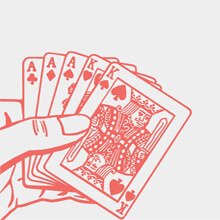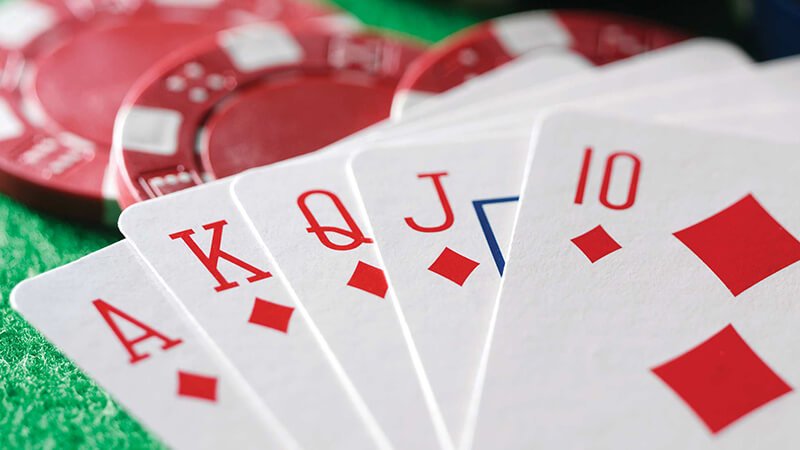
Making a Tough Lay Down in Poker
- Laying down good cards is a critical poker skill
- You need to make sure the circumstances are ideal for the lay down
- Beyond pot odds, you need to read your other players
It’s one of the most difficult things for any poker player to do; making a tough lay down in poker. So much of the game is spent waiting for good cards, which simply don’t come around all that often. Most of the cards dealt to us will be ugly junk, and so when we finally do get hold of something worthwhile, it’s almost as if we fall in love. That beautiful pair, or those bewitching big cards, can be excruciatingly difficult to lay down, but the ability to make a tough lay down in poker and fold premium cards in the right spot is a critical poker skill, without which it’s virtually impossible to be a long-term winner at the game. When good hands make bad calls, that’s a serious leak and one which can prove to be very costly the longer you allow it to go on.
Almost anyone would have a difficult time folding a big pair like A-A, K-K, or Q-Q. After all, those are the three best starting hands in hold’em. But too many players can’t ever let go of hands such as A-K, J-J, T-T, or even lesser hands than these. While those are all very strong hands, they can still be beaten pre-flop, and especially post-flop when an over-card falls. Any two cards, even the mighty pockets rockets, should be foldable if the circumstances are right. Calling off money with these hands again and again, when it should be sadly obvious that they are beaten, is the kind of mistake that separates the great players from the wannabes.
The trick of course, is to know when the circumstances are right for making a tough lay down in poker. For starters, it’s partly about the type of game you’re in. Obviously, making a bad call with a good hand is not nearly as critical of a mistake in limit games, since the most it can possibly cost you would be four big bets. Whereas in pot-limit or no-limit, this mistake can eat up your entire stack in one fell swoop. And the ability to fold a strong hand is perhaps most crucial of all in tournaments, where a single bad decision can knock you out of the tournament for good. Even more so as the tournament gets to the bubble stage and, depending on the payout structure, at the final table.
Pot odds are, of course, another major consideration. In limit games, if the pot is big enough, you’re usually getting the odds to call. The big bet games are another story, and this is where factors such as the size of the pot, how much it will cost you to see the hand through, and how many clean outs you have to improve if you are indeed behind, all must be considered very carefully.
Beyond that, it’s all about the reads. To know when it’s time to fold a hand like Q-Q, you must pay close attention to the betting patterns and have a strong read on your opponents. What kinds of hands do they limp with, raise with, come over the top with? Pre-flop, if you are facing a raise and a re-raise, and at least one of the two raisers is someone you know to be a very tight conservative player, then it’s likely you are already behind and should fold. If, on the other hand, one of the raisers is a maniac and you put the other raiser on something like A-K, then your hand is still a favourite at this point (albeit only by a little bit). If an ace or king flops, time to reassess. But if you still trust in your original read of “He has A-K,” and you don’t fall into the wishful-thinking trap of revising your read to put him on a lesser hand that you can still beat now, then a lay down is probably in order.

Chasing the Long Shot is for Suckers
The same logic applies post-flop, especially when the board is very coordinated. It’s painful to fold pocket aces, but if the flop contains flush and/or straight possibilities, and then the action is raised by a very tight player before it gets to you, be prepared to kiss those aces goodbye. Ditto for a flopped set, which may be one of the most difficult hands of all to let go of. The better your hand, the more certain you must be that it is truly beaten, which brings us back to the fact that you need a strong read on your opponents.
Finally, if you do manage to be make a tough lay down in poker and then it turns out that the turn or river card would have improved your hand and won the pot for you, don’t kick yourself. Letting go of a good hand is one of the toughest decisions in poker, and it should not be a results-oriented choice. It’s about making the best decision based on all the information you have at the time. If your best information convinces you that your hand only has two clean outs, then folding is almost certainly the right choice, even if one of those two cards miraculously appears on the board after you fold. Long-shot chasing is for suckers, so leave it to them.